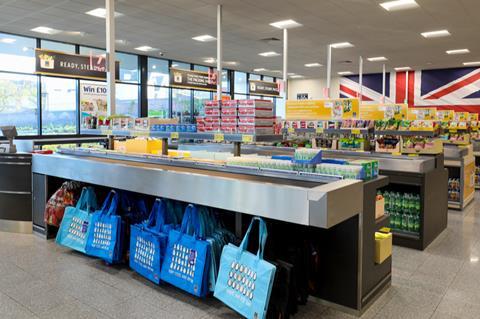
Aldi is to offer paper and compostable carrier bags across its UK store estate from next month.
A two-month trial starting from July will see half of the discounter’s 830 stores offering the new paper bag and the other half the compostable one.
The option deemed most popular with customers will then be made available in all stores, alongside Aldi’s existing bags for life.
Aldi MD of corporate responsibility Fritz Walleczek said the retailer wanted customers to help it make the best decision for them and the environment.
The compostable bag is made from biodegradable materials and will cost 6p, Aldi said. It is designed to be domestically compostable within 12 months.
The paper ones are sourced from sustainably managed forests and designed to be reusable. They can carry a claimed 11kg of groceries and will cost 19p.
Aldi expects whichever is rolled out across the estate to save 1,300 tonnes of plastic a year, or 33.3 million bags.
The move follows Morrisons’ introduction of paper bags at all its checkouts in April.
Aldi also announced this morning that later this summer it would introduce other more sustainable alternatives to the plastic bags currently offered in stores. They will include a cotton bag and one made entirely from back-of-store waste. Both will be reusable.
“Reducing the amount of plastic we produce is fundamental to our commitment to being a sustainable and environmentally responsible business,” said Walleczek. “This trial will identify the option which best suits our shoppers.
“Cutting waste is part of Aldi’s DNA and we are constantly looking for new ways to reduce our environmental impact. This new trial is one of the biggest we have ever launched because we want our customers to be involved and help us make the right decision for them and the environment.”
Aldi has also made two new sustainability pledges, committing to remove difficult-to-recycle packaging including expanded polystyrene, PVC and non-detectable black plastic from its core food range by the end of 2020, and reduce plastic packaging by 25% by the end of 2023.







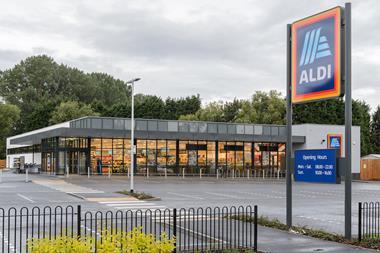
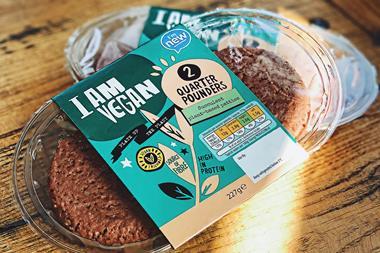

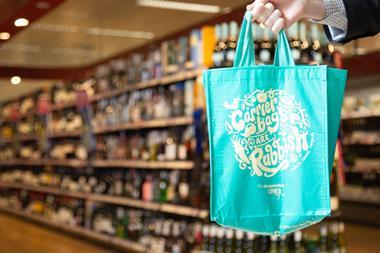
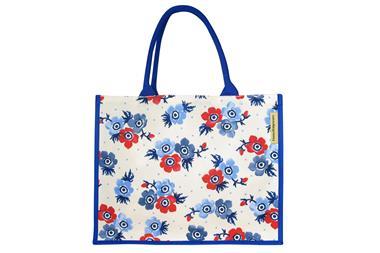
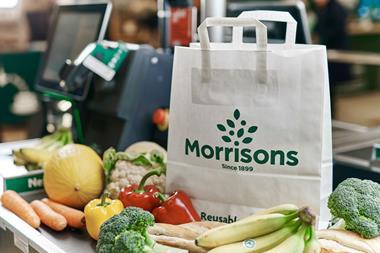

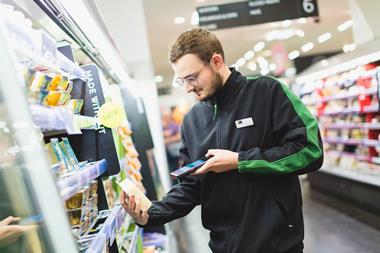
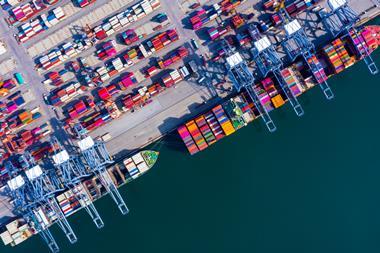


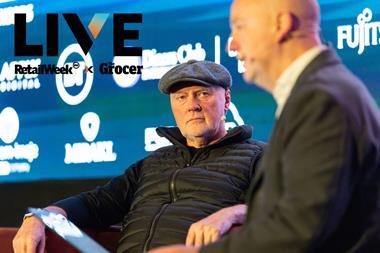
No comments yet